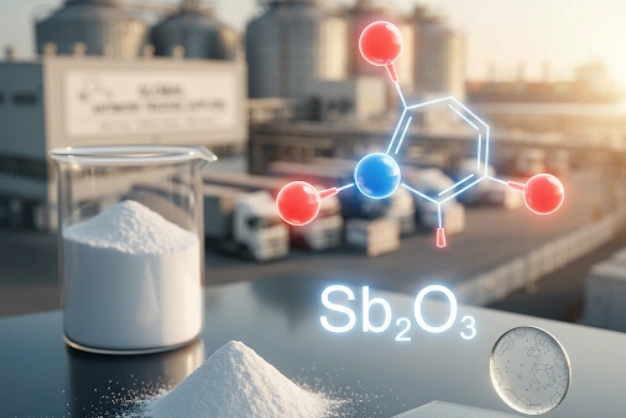TABLE OF CONTENTS
TABLE OF CONTENTS
When it comes to selecting the right silicone sealant for your project, the choice can be overwhelming. Two popular types of silicone sealants are RTV (Room Temperature Vulcanizing) silicone and marine silicone. Each has its specific properties, advantages, and applications. This article will explore these two types of silicones, compare their features and uses, and provide guidance on how to choose the right sealant for your needs.
Definition and Purpose: RTV Silicone Vs Marine Silicone
RTV Silicone: RTV silicone is a versatile type of silicone that cures at room temperature. It is known for its ease of use, flexibility, and strong adhesion properties. RTV silicone is used in various applications, including sealing, bonding, and coating. It is commonly found in household repairs, automotive applications, and industrial settings.
Marine Silicone: Marine silicone, on the other hand, is specifically formulated for use in marine environments. It is designed to withstand the harsh conditions found at sea, including exposure to saltwater, UV rays, and extreme temperatures. Marine silicone is ideal for sealing and bonding on boats, ships, and other marine vessels, ensuring a watertight and durable seal.
Key Features and Properties: RTV Silicone Vs Marine Silicone
RTV Silicone
Curing Process: RTV silicone cures at room temperature, making it convenient for a wide range of applications.
Flexibility: It remains flexible after curing, allowing it to absorb movement and vibrations.
Adhesion: RTV silicone adheres well to various materials, including glass, metal, ceramics, and some plastics.
Temperature Resistance: It can withstand high temperatures, making it suitable for automotive and industrial applications.
Electrical Insulation: RTV silicone provides good electrical insulation properties, useful in electronics and electrical applications.
Marine Silicone
Waterproofing: Marine silicone offers excellent waterproofing capabilities, essential for marine applications.
UV Resistance: It is resistant to UV radiation, preventing degradation from prolonged sun exposure.
Flexibility and Durability: Marine silicone remains flexible and durable in harsh marine conditions, including saltwater exposure.
Adhesion: It bonds well to marine materials like fiberglass, metal, and wood.
Mold and Mildew Resistance: Marine silicone is often formulated with anti-fungal properties to prevent mold and mildew growth.
Common Applications: RTV Silicone Vs Marine Silicone
RTV Silicone
Household Repairs: Sealing windows, doors, and bathrooms.
Automotive Applications: Gasketing, sealing engines, and automotive parts.
Industrial Uses: Sealing and bonding in manufacturing processes.
Electronics: Coating and protecting electronic components.
Marine Silicone
Boat Construction: Sealing seams, hatches, and fittings on boats.
Marine Repairs: Fixing leaks and sealing joints on marine vessels.
Underwater Applications: Ensuring watertight seals for submerged parts and equipment.
Deck and Hull Maintenance: Protecting and sealing exposed surfaces on marine vessels.
Key Differences Between Marine Silicone and General-Purpose Silicone
Formulation
Marine Silicone: Contains specific additives and compounds designed to enhance performance in marine environments. These additives improve resistance to water, salt, and UV rays.
General-Purpose Silicone: While effective for many applications, it lacks the specialized additives found in marine silicone, making it less suitable for extreme conditions.
Environmental Resistance
Marine Silicone: Superior resistance to water, salt, and UV rays. It is designed to maintain its properties even when continuously exposed to these elements.
General-Purpose Silicone: Adequate for typical household conditions but may degrade faster when exposed to harsh environments like saltwater and prolonged sunlight.
Durability and Flexibility
Marine Silicone: Offers long-term performance in marine environments, retaining flexibility and durability despite constant movement and vibrations.
General-Purpose Silicone: While flexible and durable, it may not withstand the same level of environmental stress as marine silicone.
Adhesion Properties
Marine Silicone: Specifically formulated to bond effectively with marine materials such as fiberglass, metal, and wood.
General-Purpose Silicone: Bonds well with common household materials but may not adhere as strongly to marine-specific surfaces.
Mold and Mildew Resistance
Marine Silicone: Contains anti-fungal properties to prevent mold and mildew growth in wet environments.
General-Purpose Silicone: Provides resistance to mold in typical conditions but may not be as effective in constantly damp environments.
How to Choose the Right Silicone Sealant
Factors to Consider
Factors to Consider
Determine whether the sealant will be used in a marine or general household environment.
Assess the conditions the sealant will be exposed to, such as water, UV rays, and temperature fluctuations.
Durability and Resistance to Elements
Consider the level of resistance needed for water, salt, and UV rays.
Evaluate the importance of flexibility and durability over time.
Material Compatibility
Ensure the sealant adheres well to the materials involved in your project, whether it’s fiberglass, metal, wood, or household surfaces.
Recommendations
When to Use Marine Silicone
For any application involving marine environments, boats, or continuous water exposure.
When UV resistance and long-term durability in harsh conditions are essential.
When General-Purpose Silicone is Sufficient
For household repairs, automotive applications, and general sealing and bonding tasks.
When the environment does not involve extreme conditions like saltwater or prolonged sun exposure.
Conclusion
Choosing the right silicone sealant is crucial for ensuring the longevity and effectiveness of your project. While RTV silicone offers versatility and ease of use for a wide range of applications, marine silicone provides specialized properties for the demanding conditions of marine environments. By understanding the differences in formulation, environmental resistance, durability, adhesion, and mold resistance, you can make an informed decision on which silicone sealant is best suited for your needs.
Selecting the appropriate sealant not only guarantees a secure and lasting bond but also helps avoid future maintenance issues and potential failures. Whether you’re working on a household repair, an automotive project, or maintaining a marine vessel, the right silicone sealant can make all the difference in achieving a successful and durable outcome.
For more information on silicone sealants and to explore a range of products suited to your specific needs, visit RawSource.com. Our team of experts is always ready to assist you in finding the perfect solution for your project.
FAQs
What is the main difference between RTV silicone and marine silicone?
RTV silicone is versatile and cures at room temperature, suitable for general use. Marine silicone is designed for marine environments with superior waterproofing, UV resistance, and durability.
Can I use marine silicone for household repairs?
Yes, but it's more expensive. For typical household tasks, RTV silicone is usually sufficient and cost-effective.
How do I know which type of silicone sealant to use for my project?
Consider the environment (water, salt, UV exposure), materials, durability needs, and cost. Use marine silicone for harsh conditions and RTV silicone for general tasks.
What makes marine silicone resistant to mold and mildew?
Marine silicone has anti-fungal additives that prevent mold and mildew growth, even in constantly damp environments.
Can RTV silicone withstand high temperatures?
Yes, RTV silicone can withstand high temperatures, making it suitable for automotive and industrial applications. Always check the specific temperature range.
Contact Us
Questions or looking for a quote?



